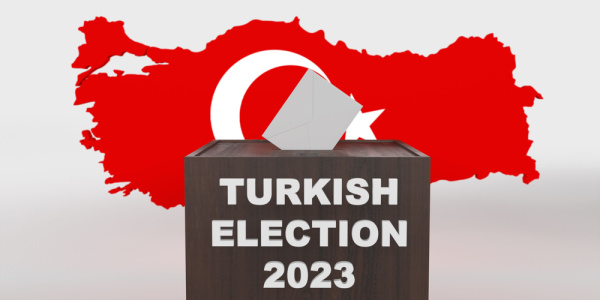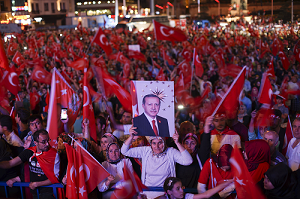Will the Turkish State Accept Kılıçdaroğlu as President?
By Halil Karaveli
May 8, 2023
It was the perceived need by the Turkish state to check the Kurdish political movement that precipitated the transition to the presidential system. Today, it is Kemal Kılıçdaroğlu’s determination to abolish this system that has secured him the support of the Kurdish movement and set him on a path to victory on May 14. But conversely this also makes Kılıçdaroğlu unacceptable to the state. A peaceful transition of power – which has been a cornerstone of Turkish democracy despite its deeply flawed character otherwise – cannot be taken for granted. The most optimistic scenario is that decision-makers in the state nonetheless conclude that the democratic legitimacy of the state must be preserved and wager that they can control and constrain Kılıçdaroğlu if he is elected president, ensuring the survival of the system over which Recep Tayyip Erdoğan has presided.

The Turkish Referendum that Was Not
by Halil Gürhanlı
April 28, 2017
There was, arguably, hardly any point in Turkey’s April 16 referendum. Despite all the hype within the “yes” and “no” camps, both of which considered it as the most important vote ever to be cast in the country’s history, the referendum was never going to yield any major change in practical terms regardless of its result. However, the regime needed a seal of approval, without which it would have been impossible to keep acting as if it has even minimal democratic legitimacy. The referendum also served to further polarize and consolidate the bipolar hegemony in Turkish politics around the figure of President Erdoğan.

Yaşlı: The worst is yet to come
Fatih Yaşlı in Birgün writes that at first glance, the terror attack in Ankara on March 13 would appear to have been “wrong and a mistake” from the view point of PKK, which has also been pointed out by leftist circles that are close to the Kurdish movement. These make the point that the massacre in Ankara circumscribes the political room of maneuver of the leftist-democrat forces in the west of the country and that it has undermined the position of those who call for a democratic and peaceful resolution of the Kurdish problem. What this criticism overlooks is the fact that the dynamics of war has changed since the state abandoned the “solution process”, and that the PKK – in response to the state violence that has been escalating since then – no longer gives priority to forcing a solution with “democratic” methods. Instead, PKK is spreading the war in the Kurdish areas to the rest of the country. As war has become the way of conducting politics, it leads to new alignments: MHP edges closer to the government, while CHP’s statist reflexes are triggered and the party’s discourse becomes similar to that of the governing party. And we know who’s going to benefit from that. Unfortunately, we can expect that the worst is yet to come, lest the two sides are bluffing, which they don’t seem to be doing. When the “spring war” intensifies, attacks like these are going to become routine, and with growing polarization in society, there will follow an increased risk that civilians are going to take on each other directly.



